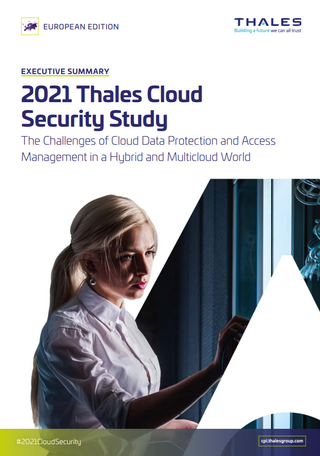Hackers publish Vestas data following cyber attack
The move suggests the company didn’t comply with the hackers' ransom demands

Hackers behind last month’s cyber attack on Vestas, the world’s largest wind turbine manufacturer, have published a portion of the compromised data online.
That's according to a statement published by the company, in which it advised customers and business partners to “stay vigilant” as there's a possibility that their personal data may be misused.
The stolen data includes information embedded in identification documents such as passports, birth certificates, work permits, and driver’s licenses. In some cases, the cyber criminals managed to obtain social security numbers, medical certificates, injury reports, and bank account information.
Vestas stated that “not all employees and business partners of Vestas have been affected by the cyber security incident and the majority of the compromised personal data is not of a sensitive nature”.
This includes information embedded in CVs, such as names and contact details, emails, phone numbers, country of residence, education, and professional skills, as well as company documents including contracts and salary information.
Vestas said that it will notify the victims of the breach “if it is assessed that this is appropriate given the risk to such individuals”.

2021 Thales cloud security study
The challenges of cloud data protection and access management in a hybrid and multi cloud world
IT Pro has reached out to the company for further information but hadn't received a response at the time of publication.
Get the ITPro. daily newsletter
Receive our latest news, industry updates, featured resources and more. Sign up today to receive our FREE report on AI cyber crime & security - newly updated for 2024.
The attack, which took place on 19 November, forced Vestas to shut down its IT systems for two days “as a precaution”. The company has not named the hackers behind the attack, nor whether the cyber attack involved ransomware.
However, the news of data being published online suggests that that the company didn't comply with the hackers' ransom demands.
This is in contrast to a similar incident involving US natural gas provider Colonial Pipeline, which saw the company comply with the DarkSide hacking group’s demands and pay the $4.4 million (£3.1 million) ransom. CEO Joseph Blount said that he was aware that the decision was “highly controversial”, yet added that “it was the right thing to do for the country”.
“I didn't make it (the decision) lightly. I will admit that I wasn't comfortable seeing money go out the door to people like this,” he told the Wall Street Journal in May.
Having only graduated from City University in 2019, Sabina has already demonstrated her abilities as a keen writer and effective journalist. Currently a content writer for Drapers, Sabina spent a number of years writing for ITPro, specialising in networking and telecommunications, as well as charting the efforts of technology companies to improve their inclusion and diversity strategies, a topic close to her heart.
Sabina has also held a number of editorial roles at Harper's Bazaar, Cube Collective, and HighClouds.





